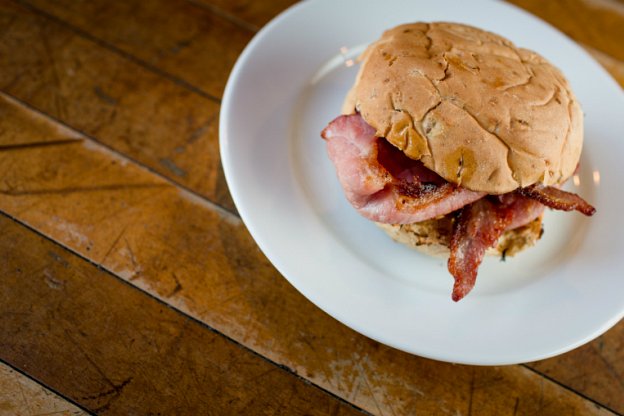Should we eat less bacon?
- January 04, 2016
So with the New Year here, many of us would have adopted a resolution or two. Generally (and myself included) they tend to focus on money or health. In particular, because of the excesses of Christmas, the health angle influences what we eat and drink.
Prior to Christmas there was a lot of coverage around the impact processed meats have on our health, (to be clear – processed meat is meat that been modified to change the taste or extend its shelf life, usually by smoking, curing, or adding salt or preservatives e.g. bacon, sausages, salami and ham) with the World Health Organisation having to confirm that they weren’t telling us to stop eating bacon, only to eat it in moderation.
This statement was issued following suggestions that eating just a 50g portion of processed meat (the equivalent of two rashers of bacon) a day increases the risk of bowel cancer by 18%, and classed ham and sausages in the “group one” of carcinogens, which puts them up there with formaldehyde, gamma radiation and cigarettes!
When digging into what other items are ingestible that could be carcinogenic (WHO list several hundred), one of which turns out to be the air we breathe! It seems the press didn’t focus on it because not breathing would be silly, whereas not eating a bacon bap is a touch more believable and might just sell a paper or two!
Quality over quantity
As The Sustainable Restaurant Association says: “Just as important as how much meat you eat, is what meat you eat – in other words, where it’s from and how it’s been produced. Not all sausages and bacon are equal, just as the pigs they come from are not. The quantities of sodium nitrate used in cheap bacon are what we should be avoiding. And better quality sausages will also have far less salt in them.”
So, if we take the recommendations into account, and are only to eat bacon and sausages in moderation, we should make sure what we do eat is as high quality as possible. When buying to have at home, check out our blog with Ten tips to buying better meat.
But what about when eating out? How can you be sure what’s in your sausage or how your bacon was produced? Well, all of our meat is free range and comes from Devon Rose, based in Seaton. Here are some facts about the meat they provide for us:
- The pork we use is fed on natural diets, running free range over pastures which are free from herbicides and pesticides.
- Our bacon is hand cured to a traditional family recipe without mass production. The way bacon used to be made.
- Our sausages have a high meat content with clean seasoning.
Uniquely, for a business of our size, we offer sausages and bacon that is free range, which makes us very proud! By knowing the provenance of these items, you can be comfortable that we have done our best to ensure – whether you decide to eat less bacon or not – that we have sourced the highest quality products.
One way to check where you’re eating is sourced well is to use The SRA’s Food Made Good website where you can search for places to eat that operate in a sustainable and ethical way.
